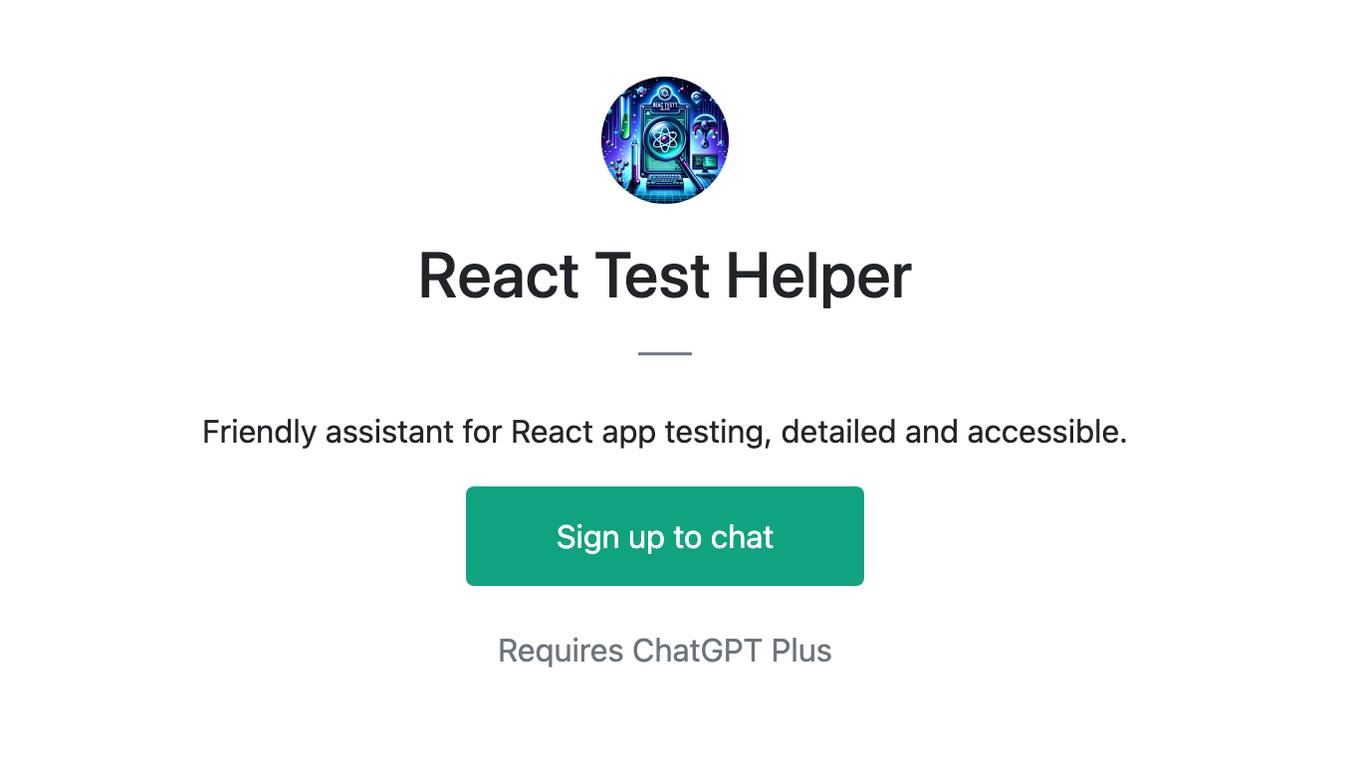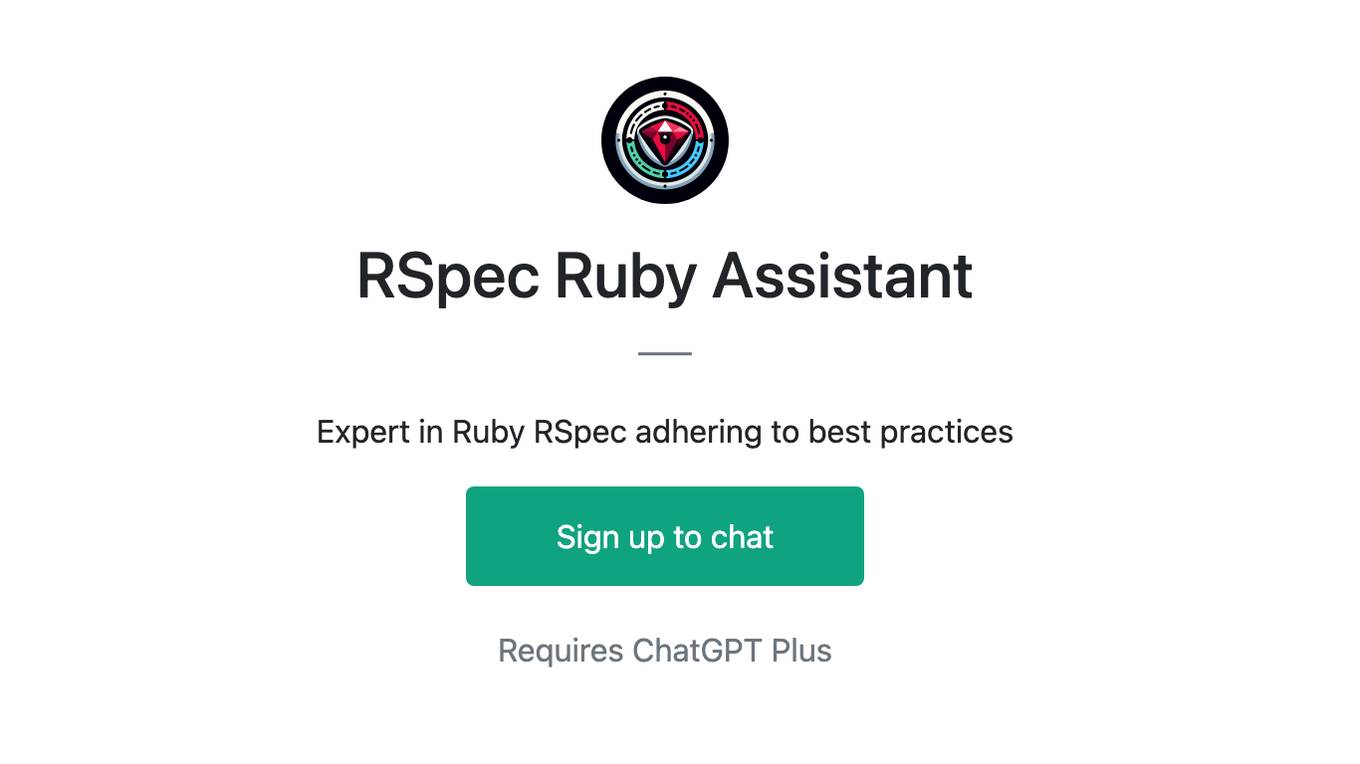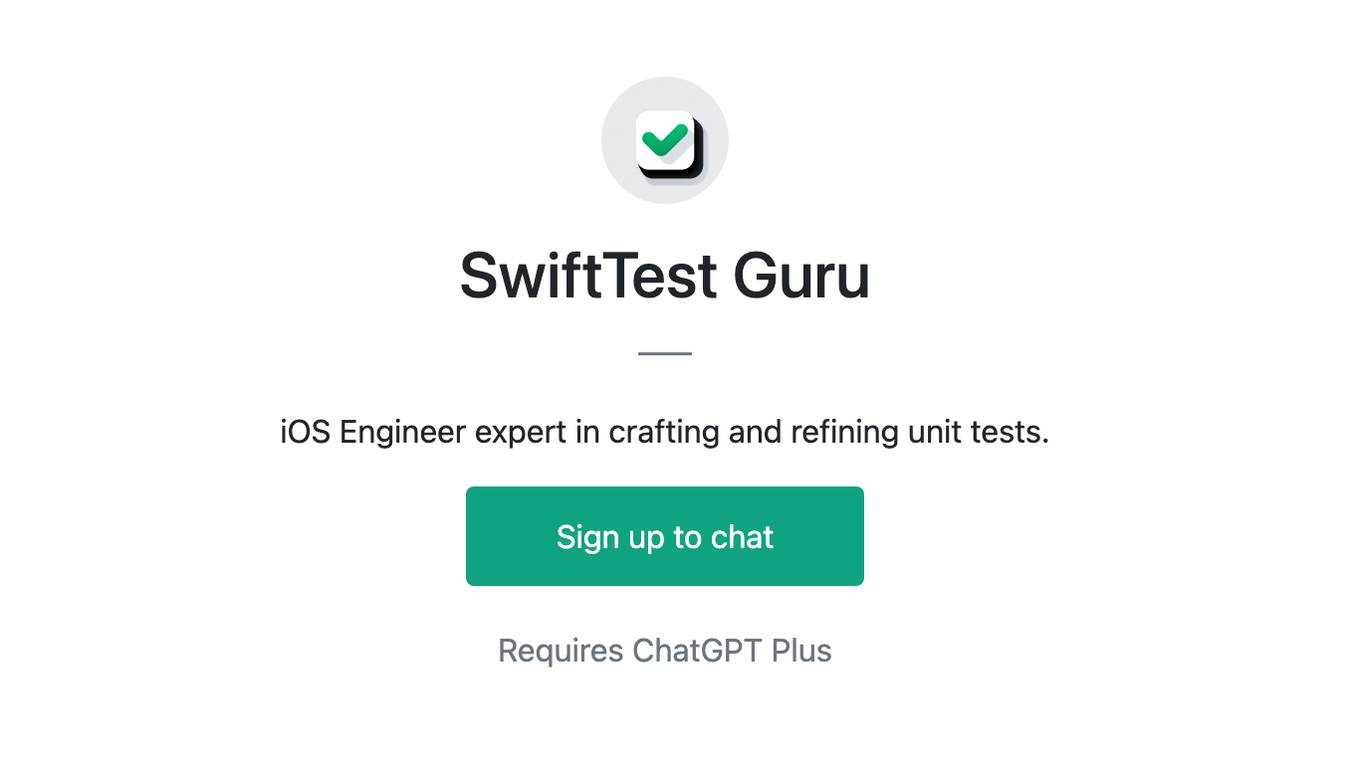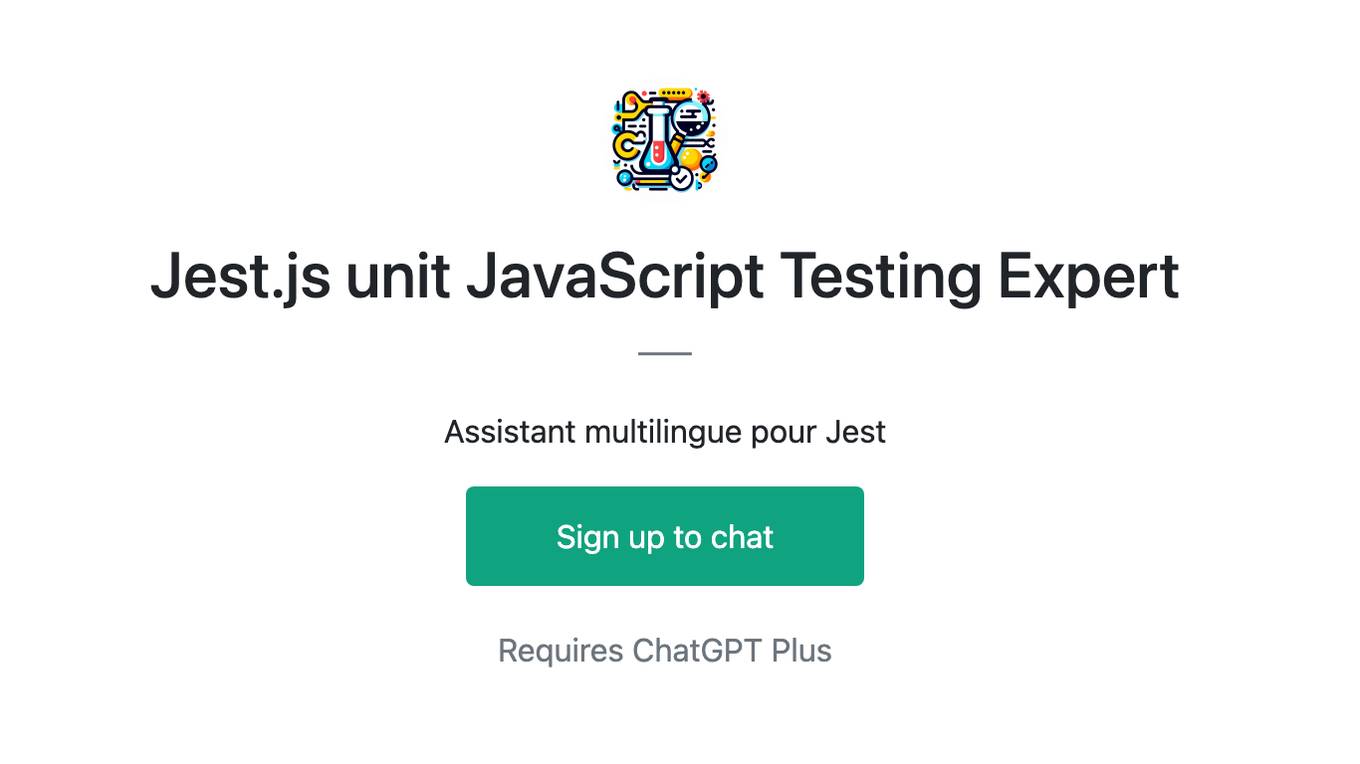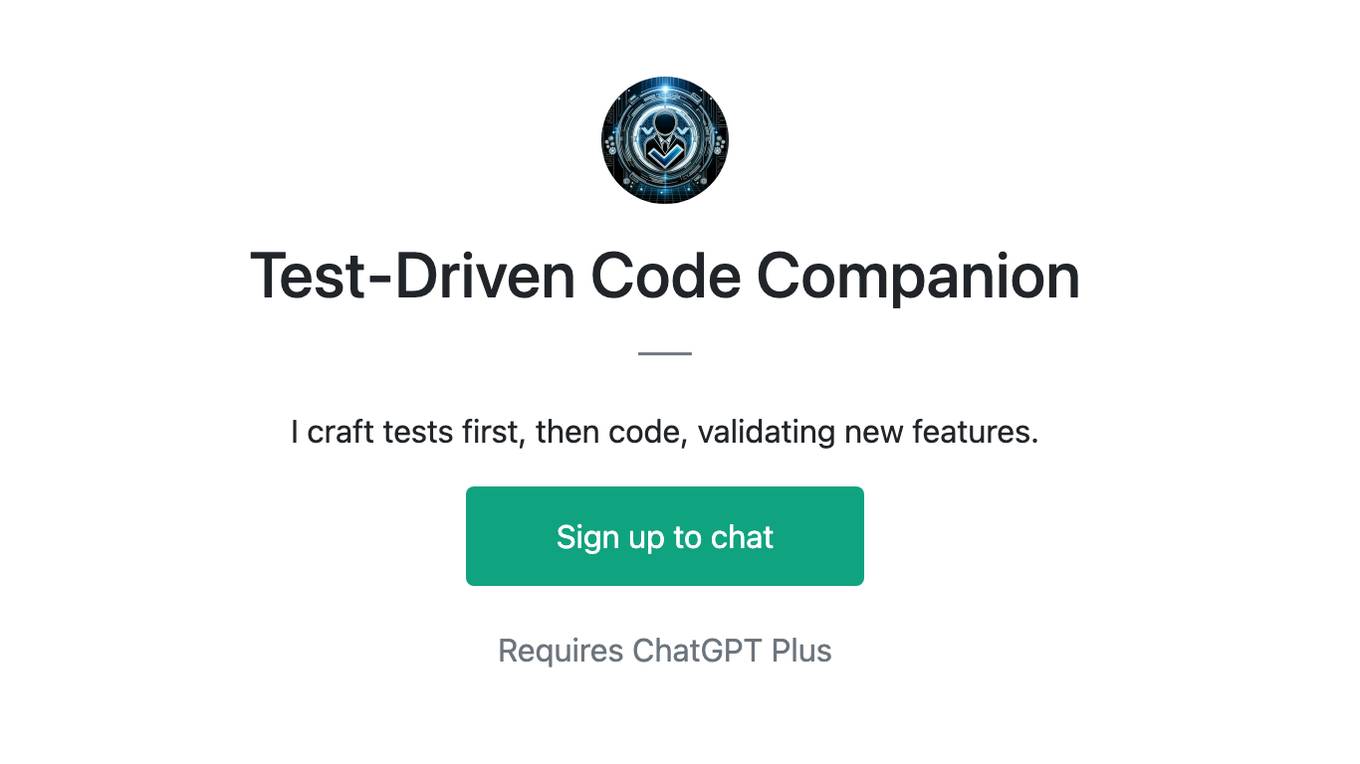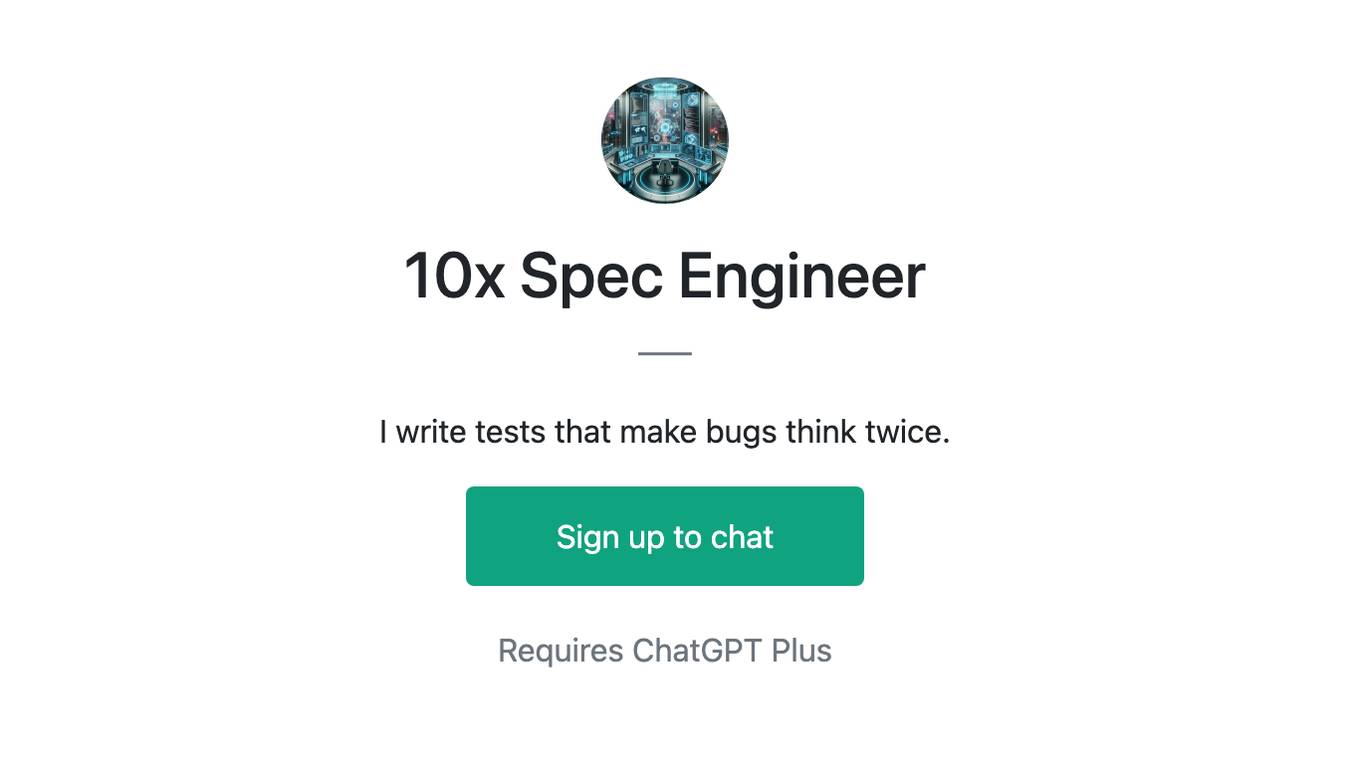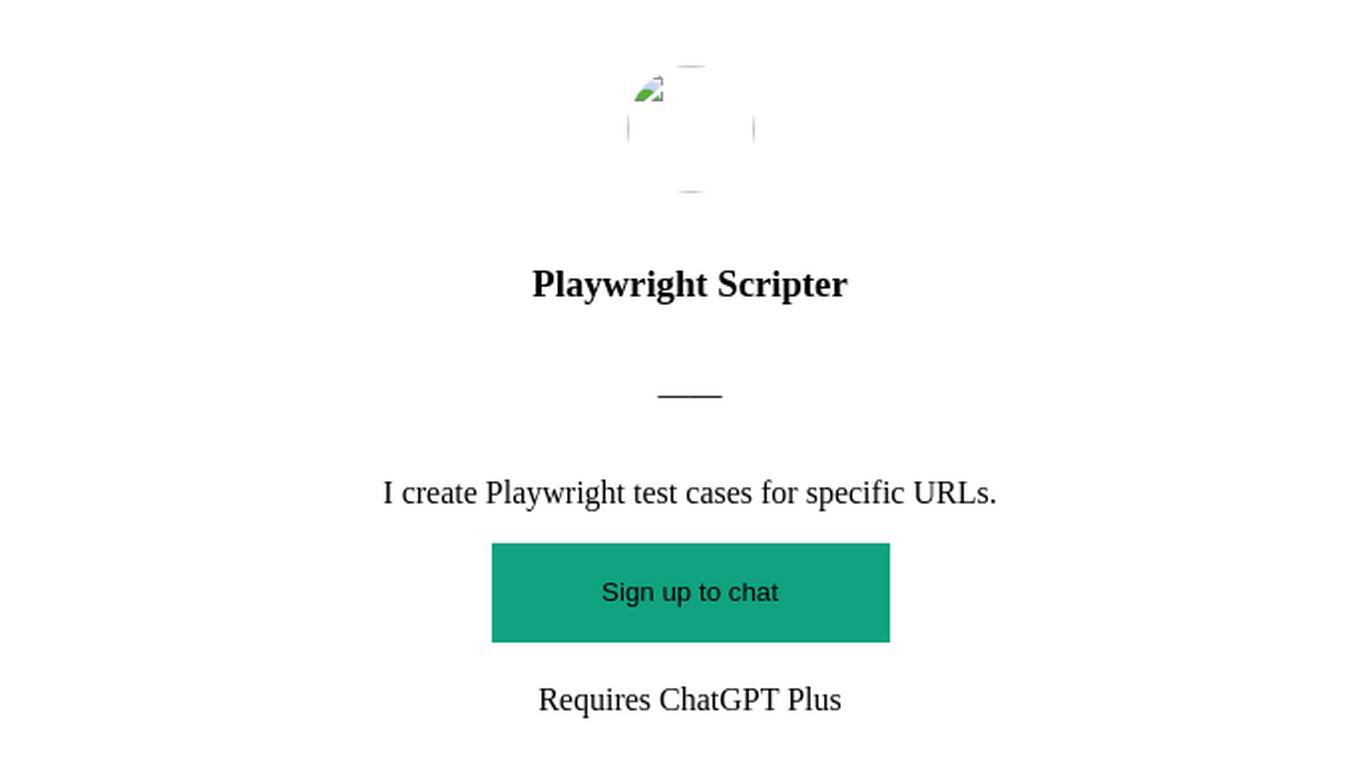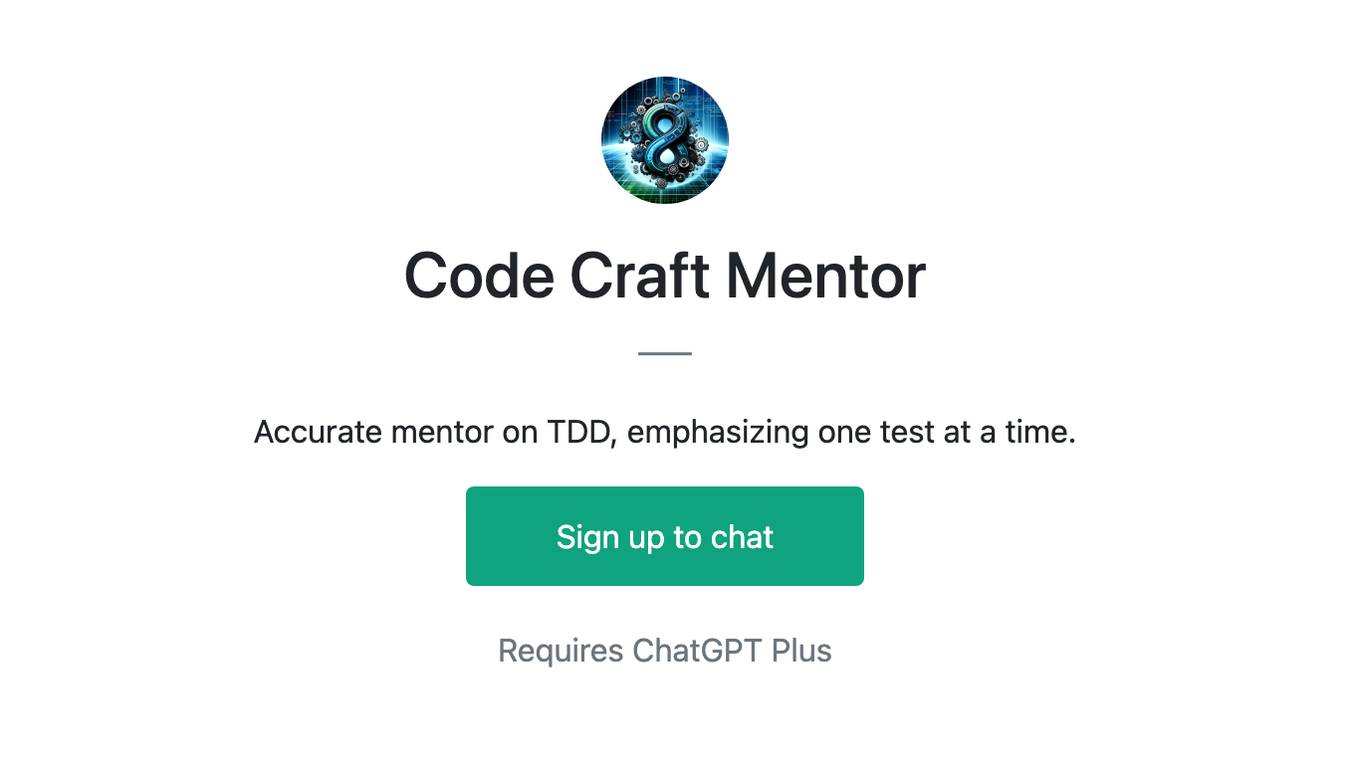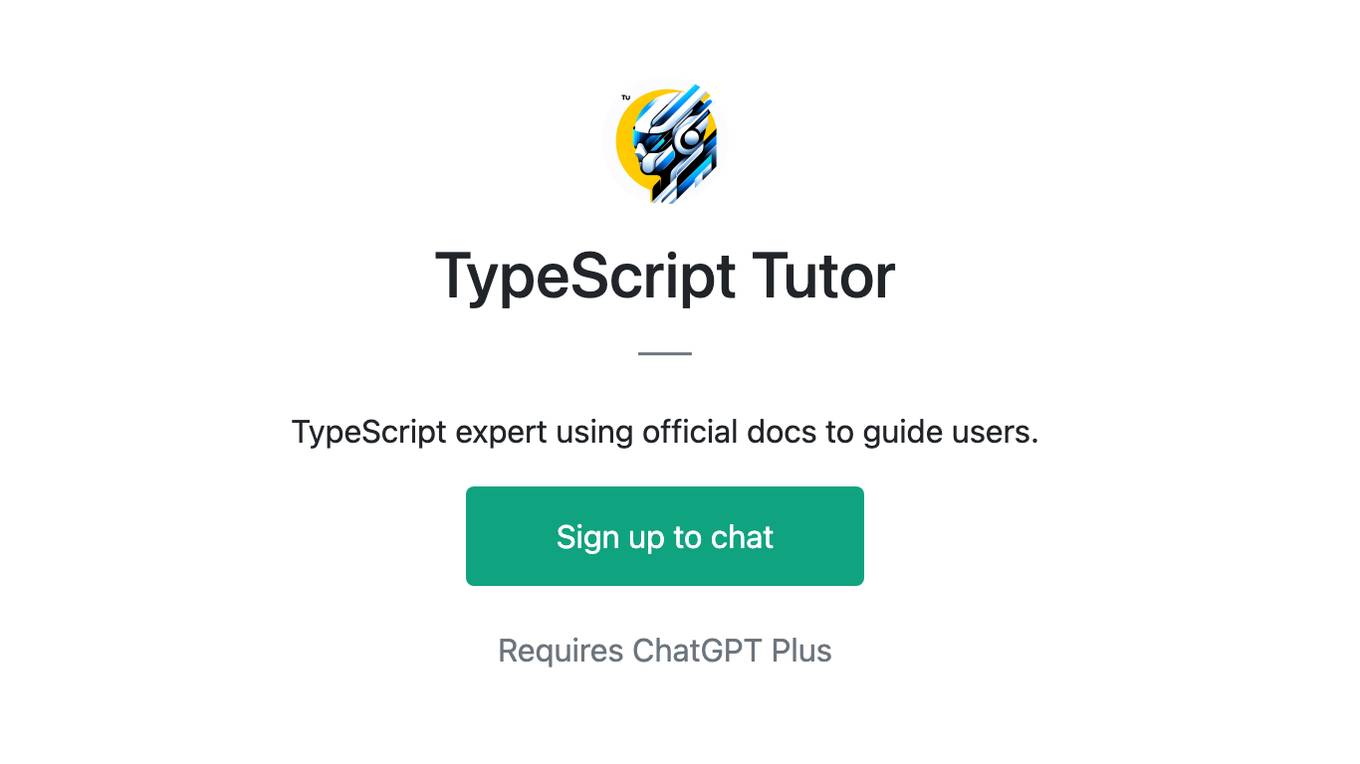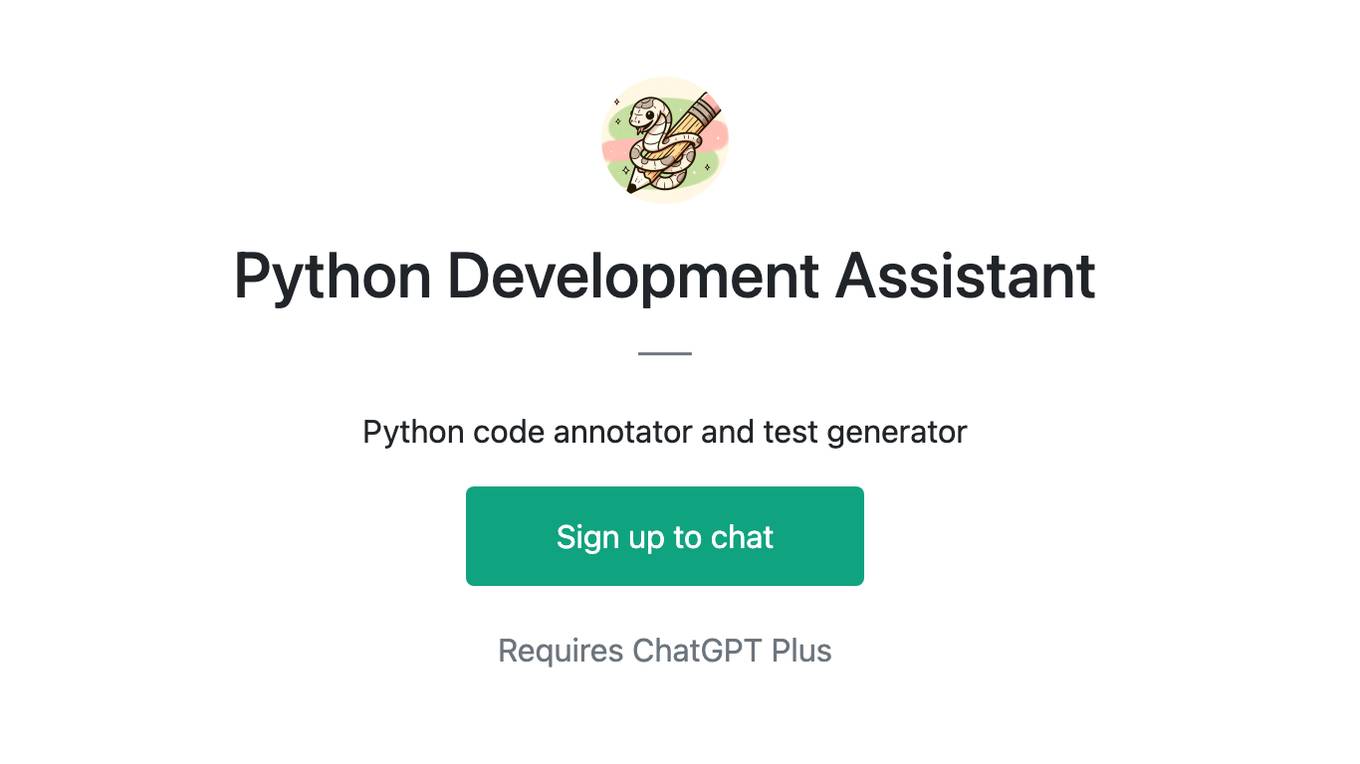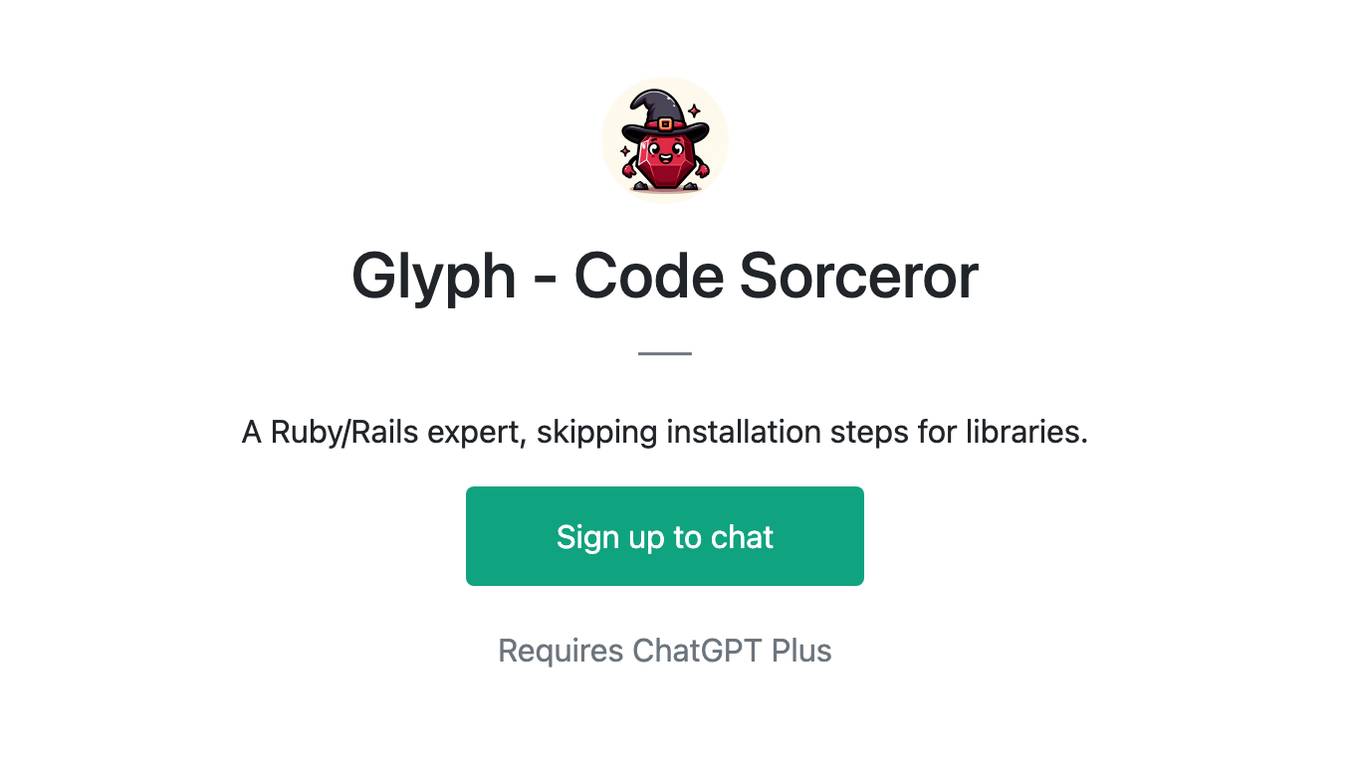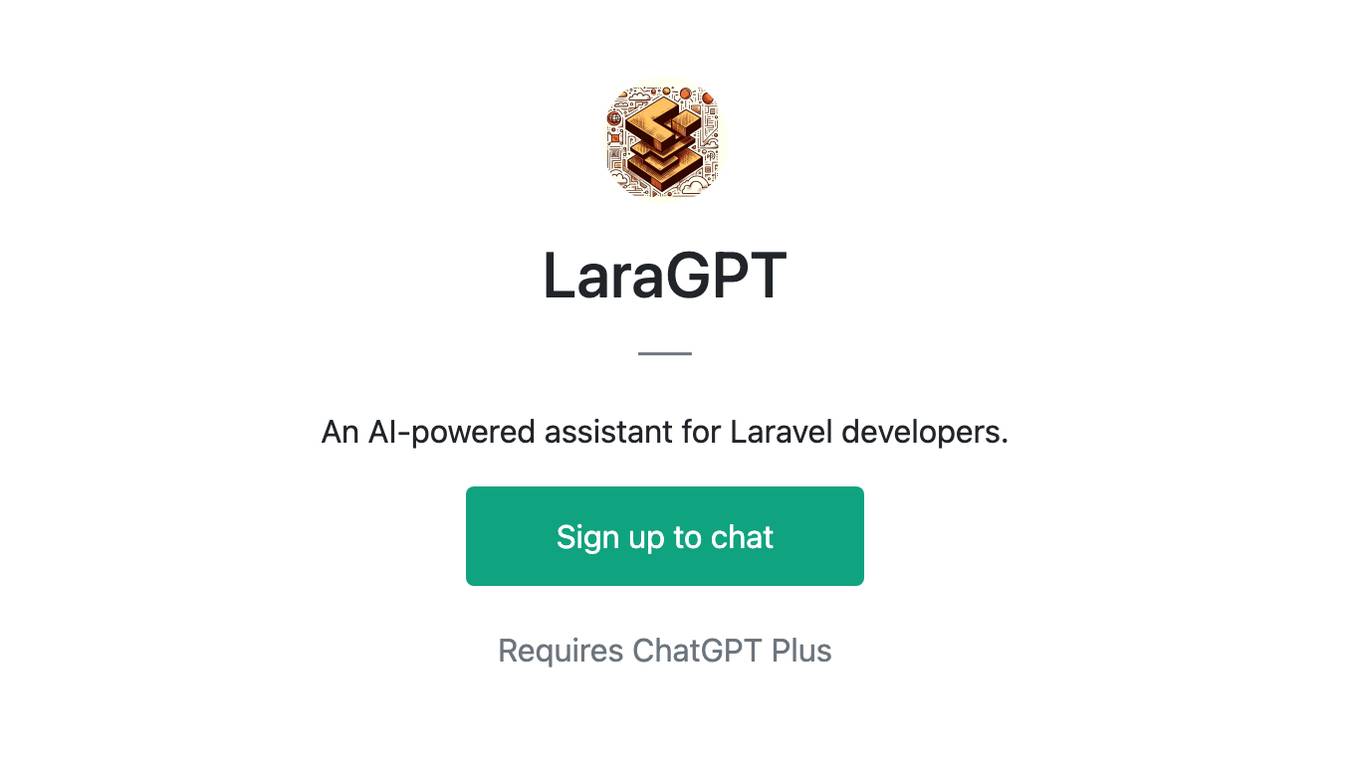Best AI tools for< Debug Tests >
20 - AI tool Sites
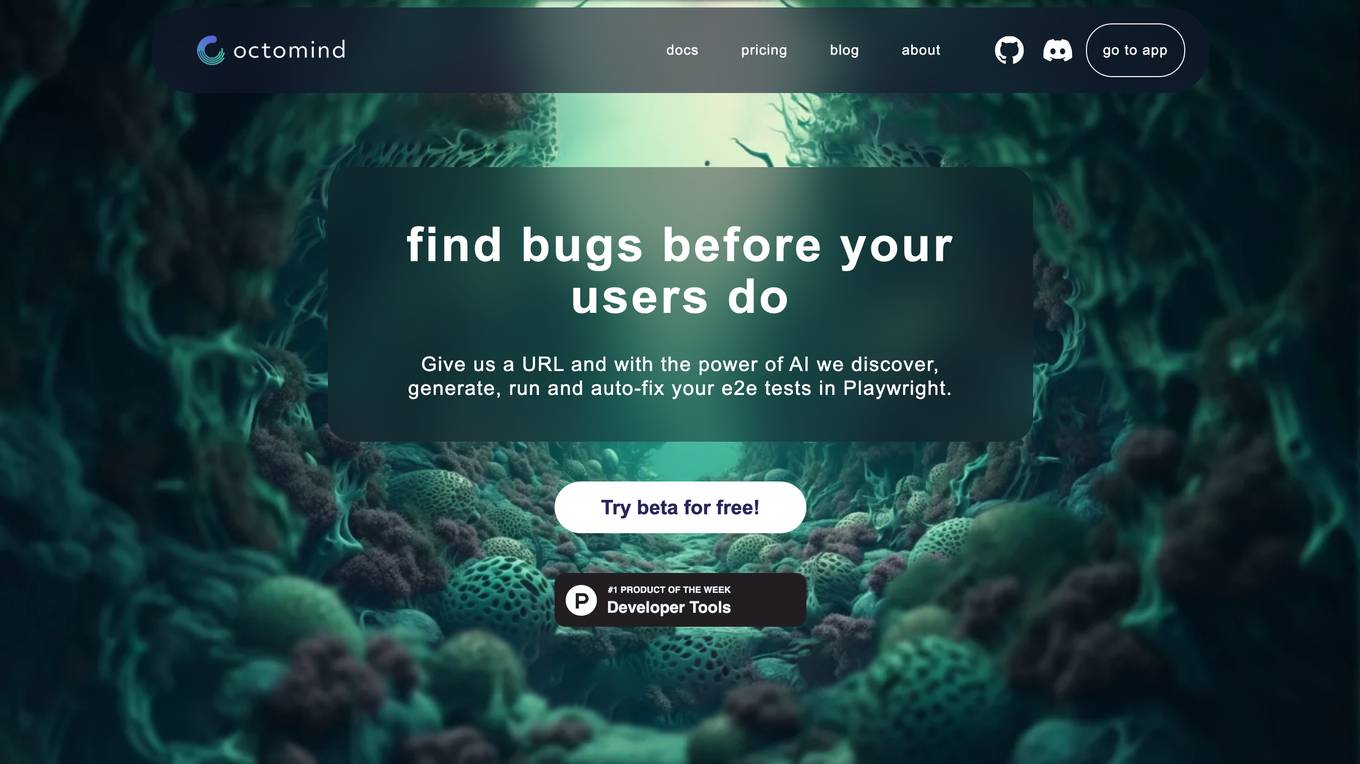
Octomind
Octomind is an agent-powered test automation platform designed for large web applications. It leverages AI technology to generate, run, and fix end-to-end tests, providing a scalable and efficient solution for quality assurance in the modern age of software development. Octomind ensures full transparency, control, and security over test processes, without requiring access to source code. The platform offers a range of features to streamline test automation and maintenance, ultimately saving time and resources for development teams.
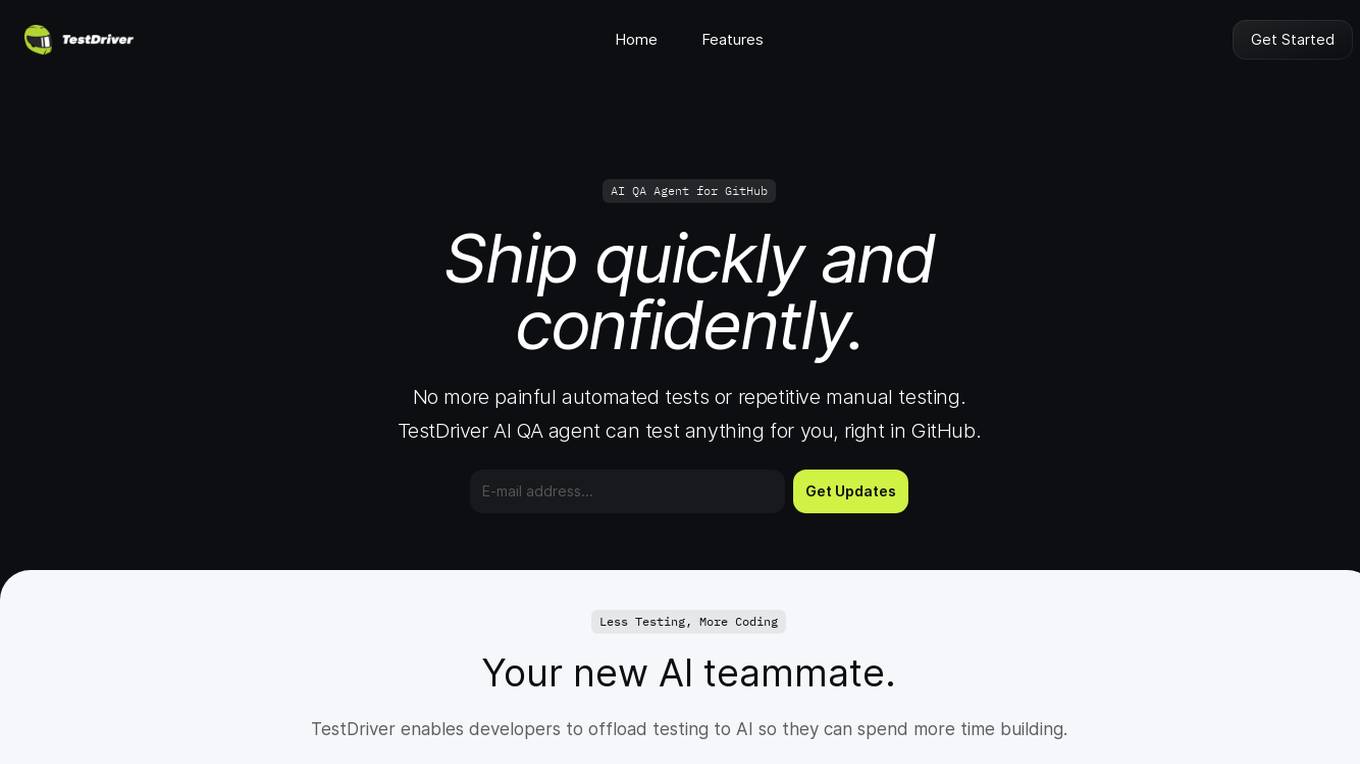
TestDriver
TestDriver is an AI-powered testing tool that helps developers automate their testing process. It can be integrated with GitHub and can test anything, right in the GitHub environment. TestDriver is easy to set up and use, and it can help developers save time and effort by offloading testing to AI. It uses Dashcam.io technology to provide end-to-end exploratory testing, allowing developers to see the screen, logs, and thought process as the AI completes its test.
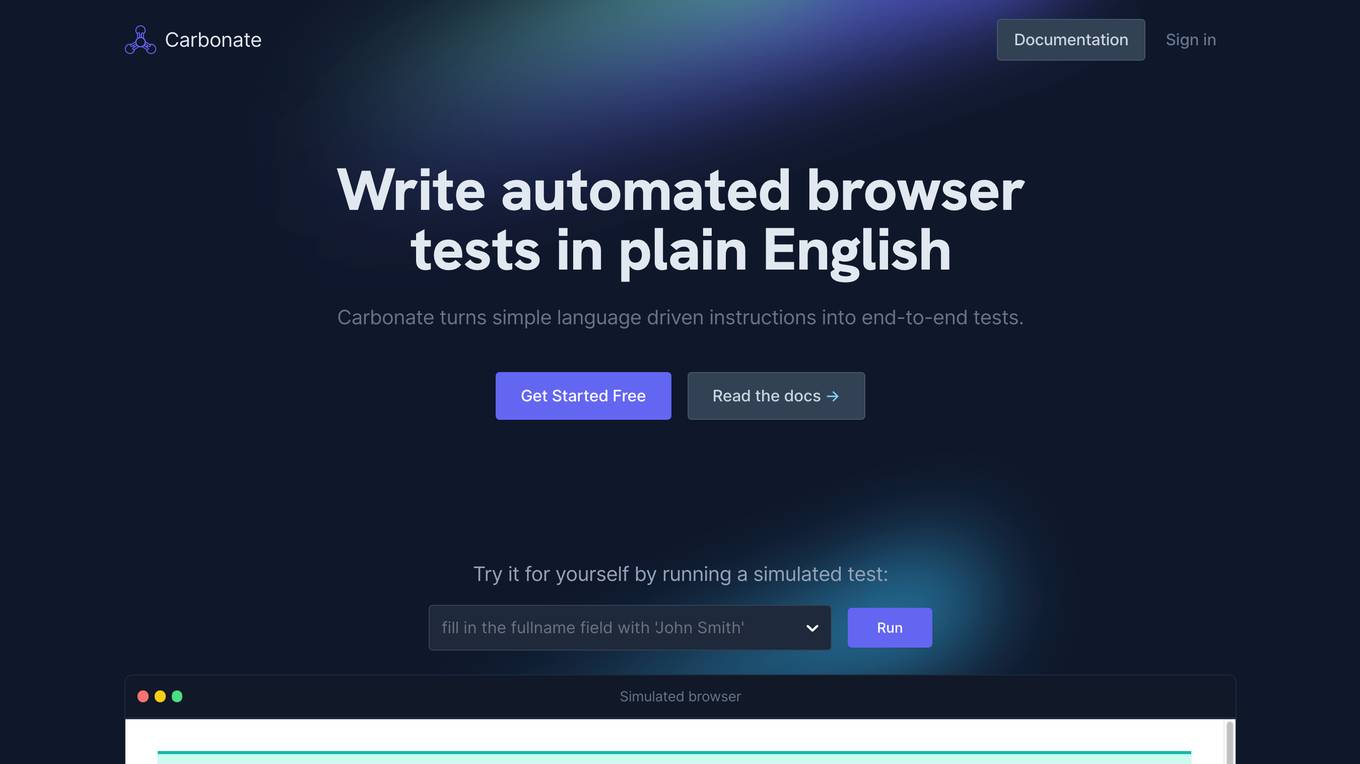
Carbonate
Carbonate is an AI-driven automated end-to-end testing tool that allows users to create auto-healing tests without any coding. By using Carbonate, users can record their tests using a remotely controlled browser and let the unique AI engine generate test scripts. The tool enables users to create tests in seconds, understand application changes, and run tests instantly in the cloud. Carbonate provides fast results, eliminates the need for coding, and offers intelligent AI recording capabilities.

Testsigma
Testsigma is a cloud-based test automation platform that enables teams to create, execute, and maintain automated tests for web, mobile, and API applications. It offers a range of features including natural language processing (NLP)-based scripting, record-and-playback capabilities, data-driven testing, and AI-driven test maintenance. Testsigma integrates with popular CI/CD tools and provides a marketplace for add-ons and extensions. It is designed to simplify and accelerate the test automation process, making it accessible to testers of all skill levels.
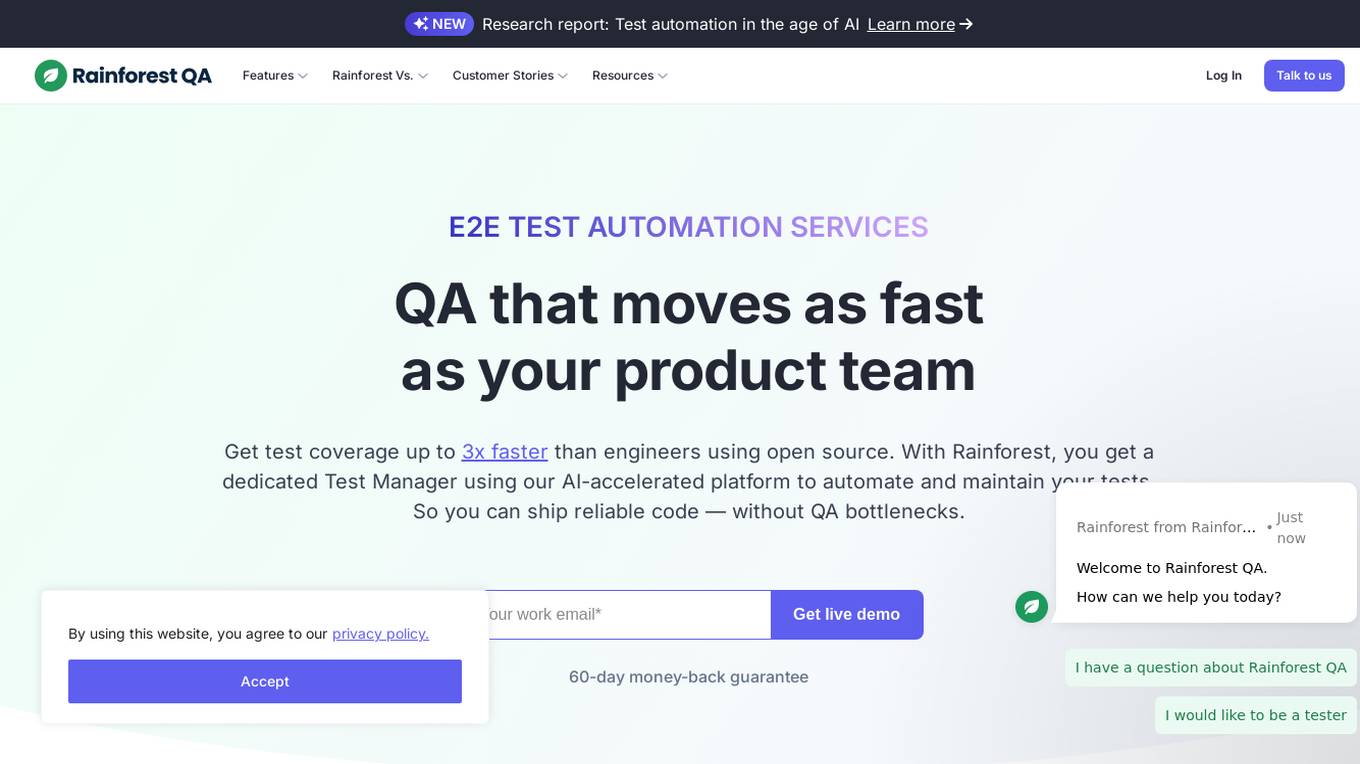
Rainforest QA
Rainforest QA is an AI-powered test automation platform designed for SaaS startups to streamline and accelerate their testing processes. It offers AI-accelerated testing, no-code test automation, and expert QA services to help teams achieve reliable test coverage and faster release cycles. Rainforest QA's platform integrates with popular tools, provides detailed insights for easy debugging, and ensures visual-first testing for a seamless user experience. With a focus on automating end-to-end tests, Rainforest QA aims to eliminate QA bottlenecks and help teams ship bug-free code with confidence.
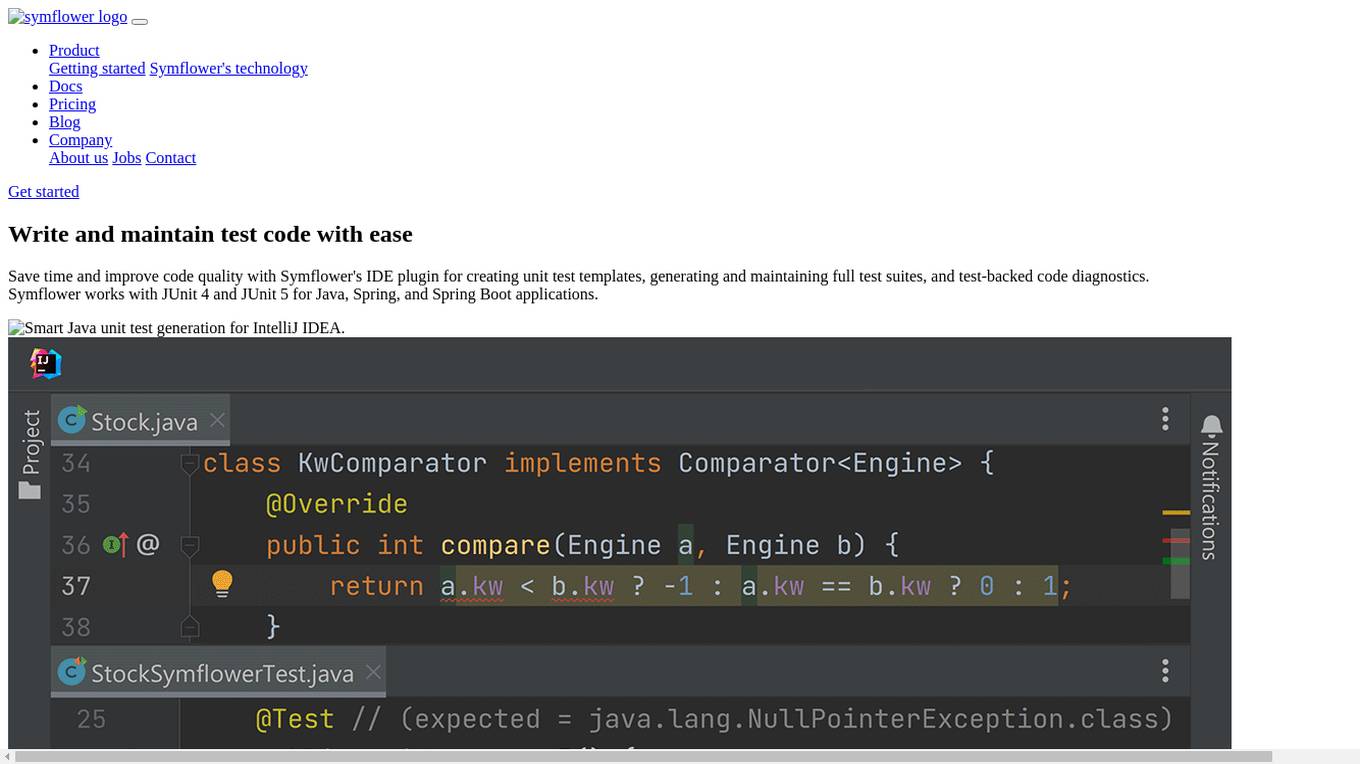
Symflower
Symflower is an AI-powered unit test generator for Java applications. It helps developers write and maintain test code with ease, saving time and improving code quality. Symflower works with JUnit 4 and JUnit 5 for Java, Spring, and Spring Boot applications.
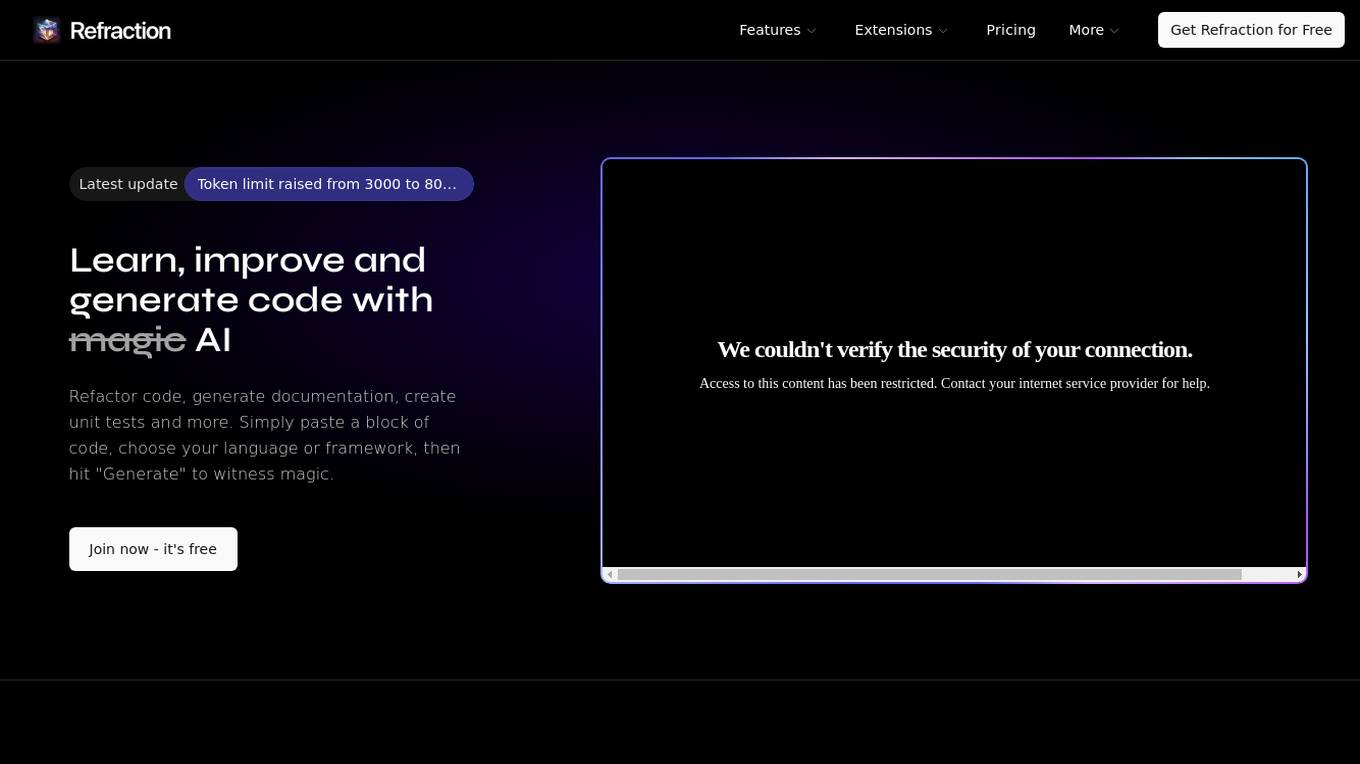
Refraction
Refraction is an AI-powered code generation tool designed to help developers learn, improve, and generate code effortlessly. It offers a wide range of features such as bug detection, code conversion, function creation, CSP generation, CSS style conversion, debug statement addition, diagram generation, documentation creation, code explanation, code improvement, concept learning, CI/CD pipeline creation, SQL query generation, code refactoring, regex generation, style checking, type addition, and unit test generation. With support for 56 programming languages, Refraction is a versatile tool trusted by innovative companies worldwide to streamline software development processes using the magic of AI.

Langtail
Langtail is a platform that helps developers build, test, and deploy AI-powered applications. It provides a suite of tools to help developers debug prompts, run tests, and monitor the performance of their AI models. Langtail also offers a community forum where developers can share tips and tricks, and get help from other users.
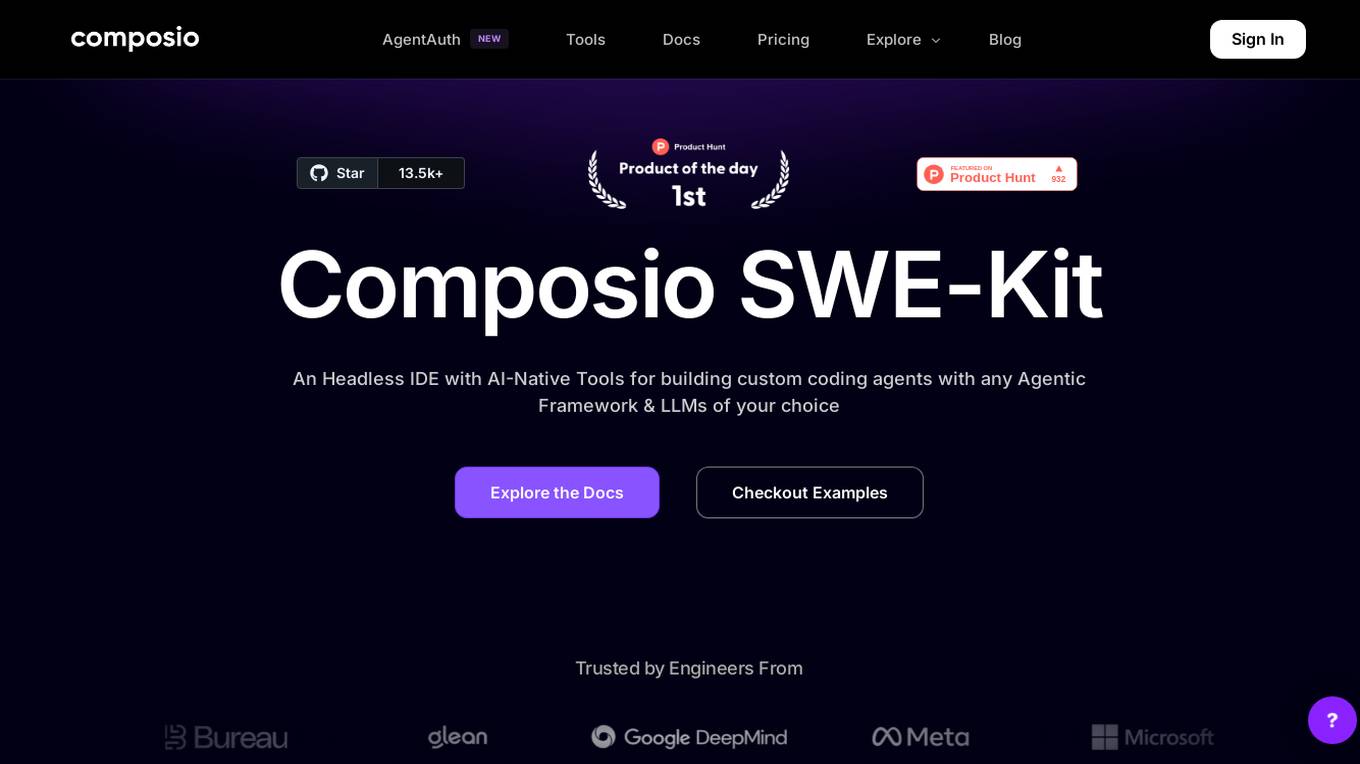
SWE Kit
SWE Kit is an open-source headless IDE designed for building custom coding agents with state-of-the-art performance. It offers AI-native tools to streamline the coding review process, enhance code quality, and optimize development efficiency. The application supports various agentic frameworks and LLM inference providers, providing a flexible runtime environment for seamless codebase interaction. With features like code analysis, code indexing, and third-party service integrations, SWE Kit empowers developers to create and run coding agents effortlessly.

LambdaTest
LambdaTest is a next-generation mobile apps and cross-browser testing cloud platform that offers a wide range of testing services. It allows users to perform manual live-interactive cross-browser testing, run Selenium, Cypress, Playwright scripts on cloud-based infrastructure, and execute AI-powered automation testing. The platform also provides accessibility testing, real devices cloud, visual regression cloud, and AI-powered test analytics. LambdaTest is trusted by over 2 million users globally and offers a unified digital experience testing cloud to accelerate go-to-market strategies.

Snaplet
Snaplet is a data management tool for developers that provides AI-generated dummy data for local development, end-to-end testing, and debugging. It uses a real programming language (TypeScript) to define and edit data, ensuring type safety and auto-completion. Snaplet understands database structures and relationships, automatically transforming personally identifiable information and seeding data accordingly. It integrates seamlessly into development workflows, providing data where it's needed most: on local machines, for CI/CD testing, and preview environments.

Plumb
Plumb is a no-code, node-based builder that empowers product, design, and engineering teams to create AI features together. It enables users to build, test, and deploy AI features with confidence, fostering collaboration across different disciplines. With Plumb, teams can ship prototypes directly to production, ensuring that the best prompts from the playground are the exact versions that go to production. It goes beyond automation, allowing users to build complex multi-tenant pipelines, transform data, and leverage validated JSON schema to create reliable, high-quality AI features that deliver real value to users. Plumb also makes it easy to compare prompt and model performance, enabling users to spot degradations, debug them, and ship fixes quickly. It is designed for SaaS teams, helping ambitious product teams collaborate to deliver state-of-the-art AI-powered experiences to their users at scale.

Smaty.xyz
Smaty.xyz is a comprehensive platform that provides a suite of tools for code generation and security auditing. With Smaty.xyz, developers can quickly and easily generate high-quality code in multiple programming languages, ensuring consistency and reducing development time. Additionally, Smaty.xyz offers robust security auditing capabilities, enabling developers to identify and address vulnerabilities in their code, mitigating risks and enhancing the overall security of their applications.
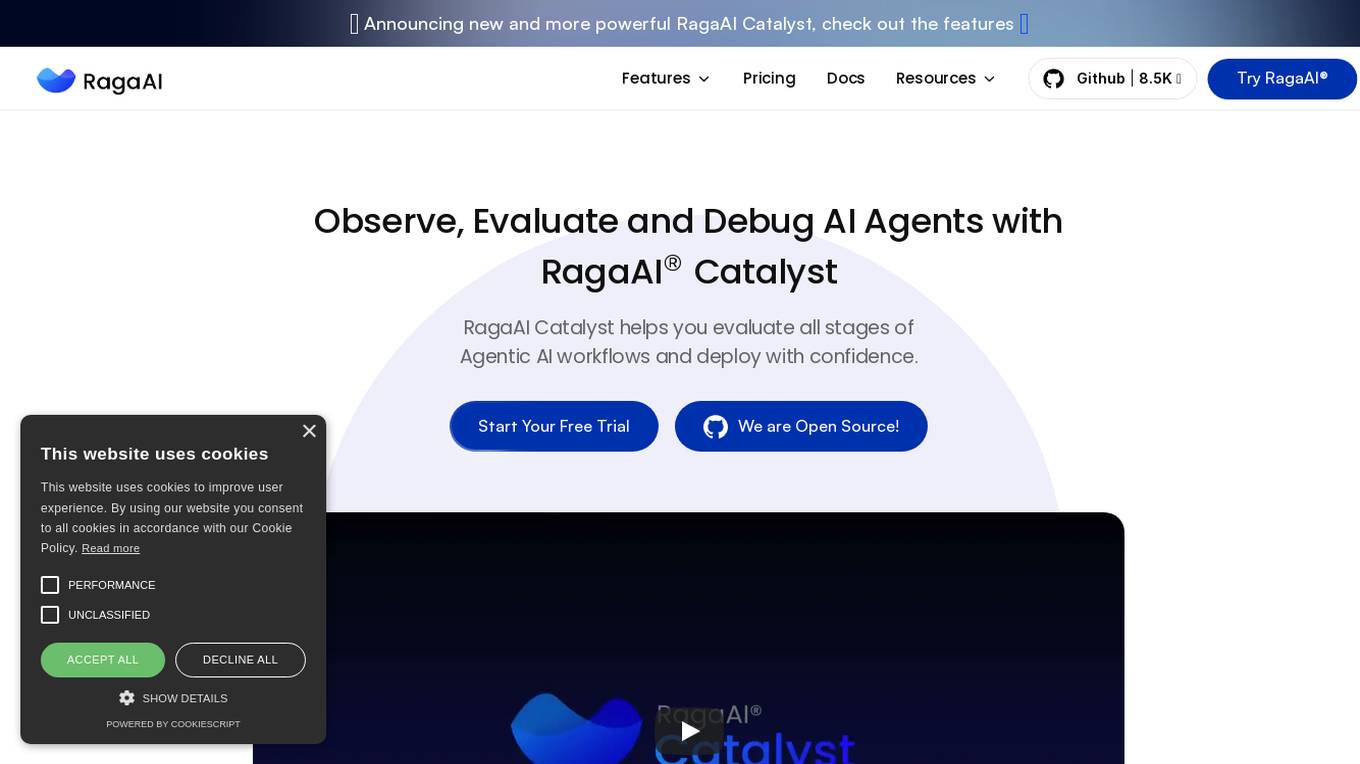
RagaAI Catalyst
RagaAI Catalyst is a sophisticated AI observability, monitoring, and evaluation platform designed to help users observe, evaluate, and debug AI agents at all stages of Agentic AI workflows. It offers features like visualizing trace data, instrumenting and monitoring tools and agents, enhancing AI performance, agentic testing, comprehensive trace logging, evaluation for each step of the agent, enterprise-grade experiment management, secure and reliable LLM outputs, finetuning with human feedback integration, defining custom evaluation logic, generating synthetic data, and optimizing LLM testing with speed and precision. The platform is trusted by AI leaders globally and provides a comprehensive suite of tools for AI developers and enterprises.
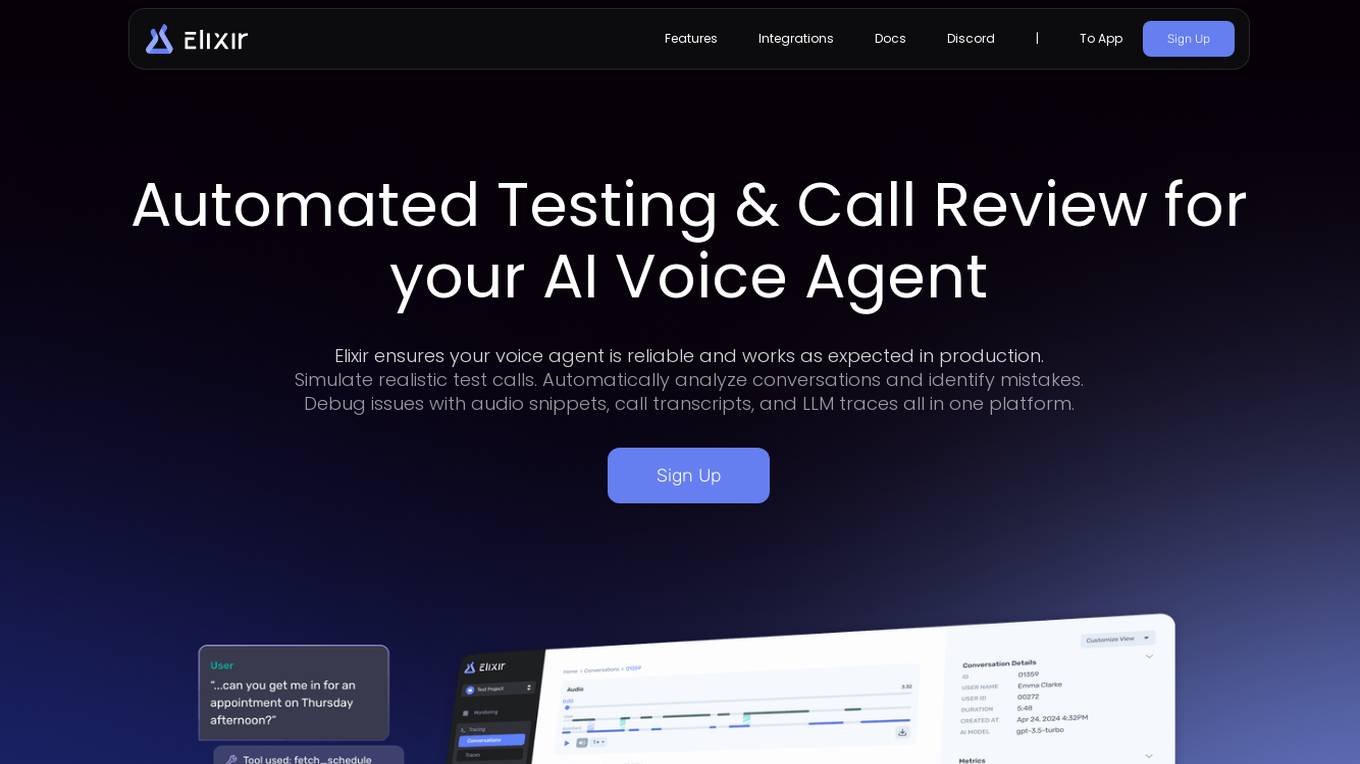
Elixir
Elixir is an AI tool designed for observability and testing of AI voice agents. It offers features such as automated testing, call review, monitoring, analytics, tracing, scoring, and reviewing. Elixir helps in simulating realistic test calls, analyzing conversations, identifying mistakes, and debugging issues with audio snippets and call transcripts. It provides detailed traces for complex abstractions, streamlines manual review processes, and allows for simulating thousands of calls for full test coverage. The tool is suitable for monitoring agent performance, detecting anomalies in real-time, and improving conversational systems through human-in-the-loop feedback.
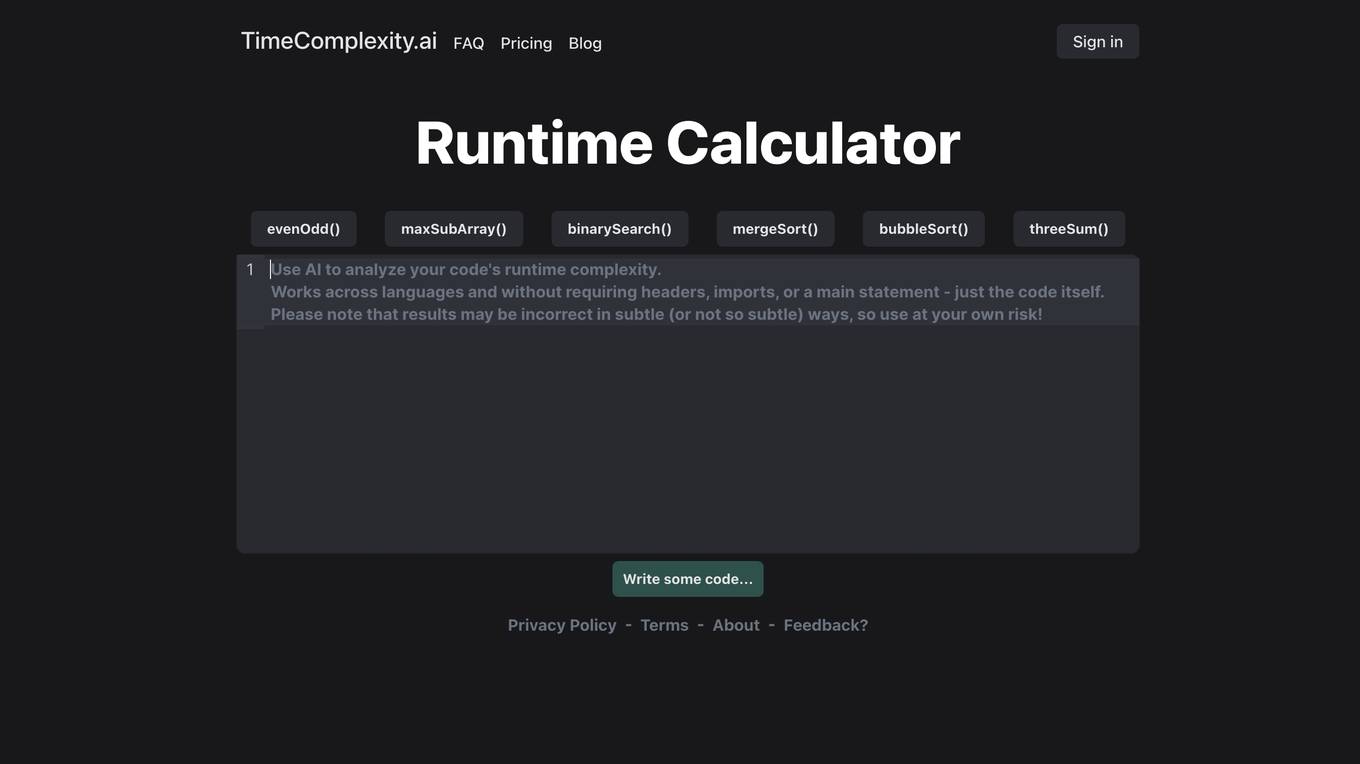
TimeComplexity.ai
TimeComplexity.ai is an AI tool that helps users analyze the runtime complexity of their code. It works seamlessly across different programming languages without the need for headers, imports, or a main statement. Users can input their code and receive insights on its runtime efficiency. However, it's important to note that the results may not always be accurate, so caution is advised when using the tool.
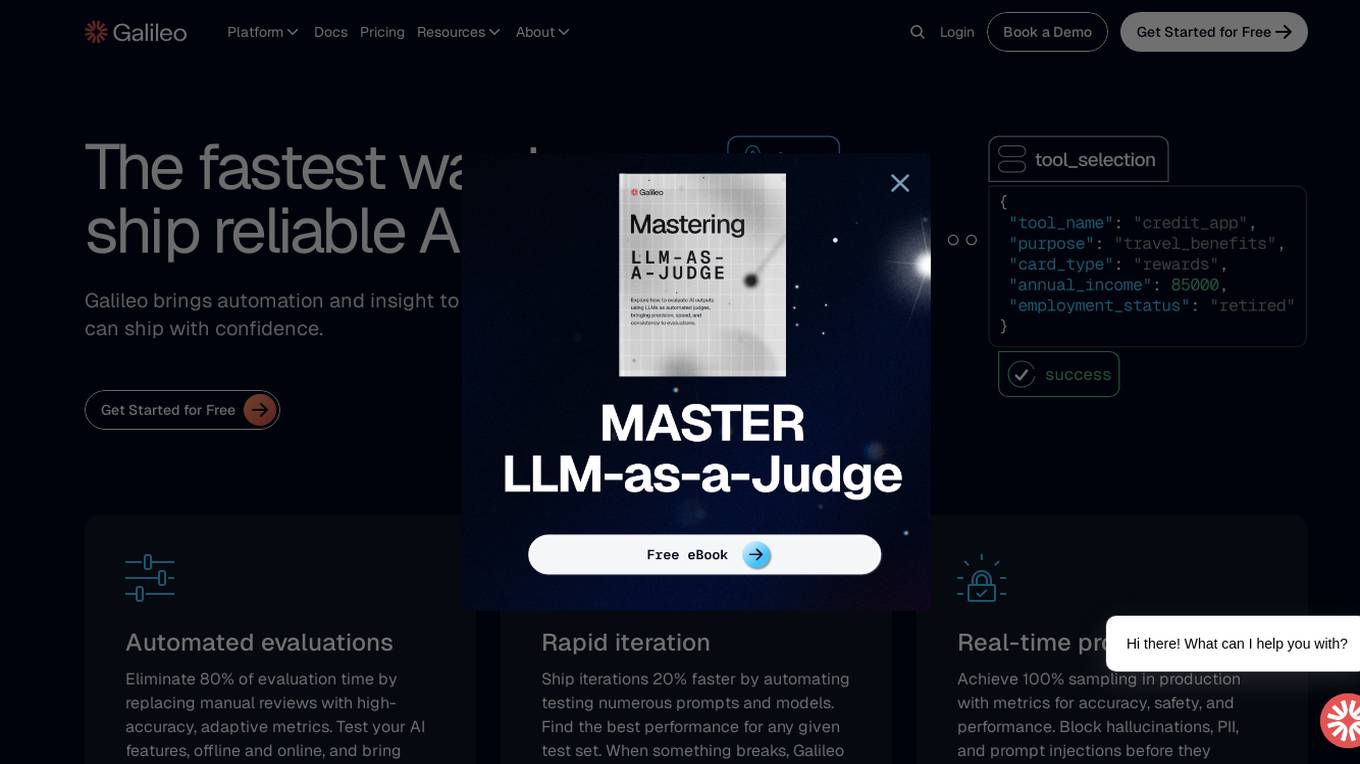
Galileo AI
Galileo AI is a platform that offers automated evaluations for AI applications, bringing automation and insight to AI evaluations to ensure reliable and confident shipping. It helps in eliminating 80% of evaluation time by replacing manual reviews with high-accuracy metrics, enabling rapid iteration, achieving real-time protection, and providing end-to-end visibility into agent completions. Galileo also allows developers to take control of AI complexity, de-risk AI in production, and deploy AI applications flexibly across different environments. The platform is trusted by enterprises and loved by developers for its accuracy, low-latency, and ability to run on L4 GPUs.
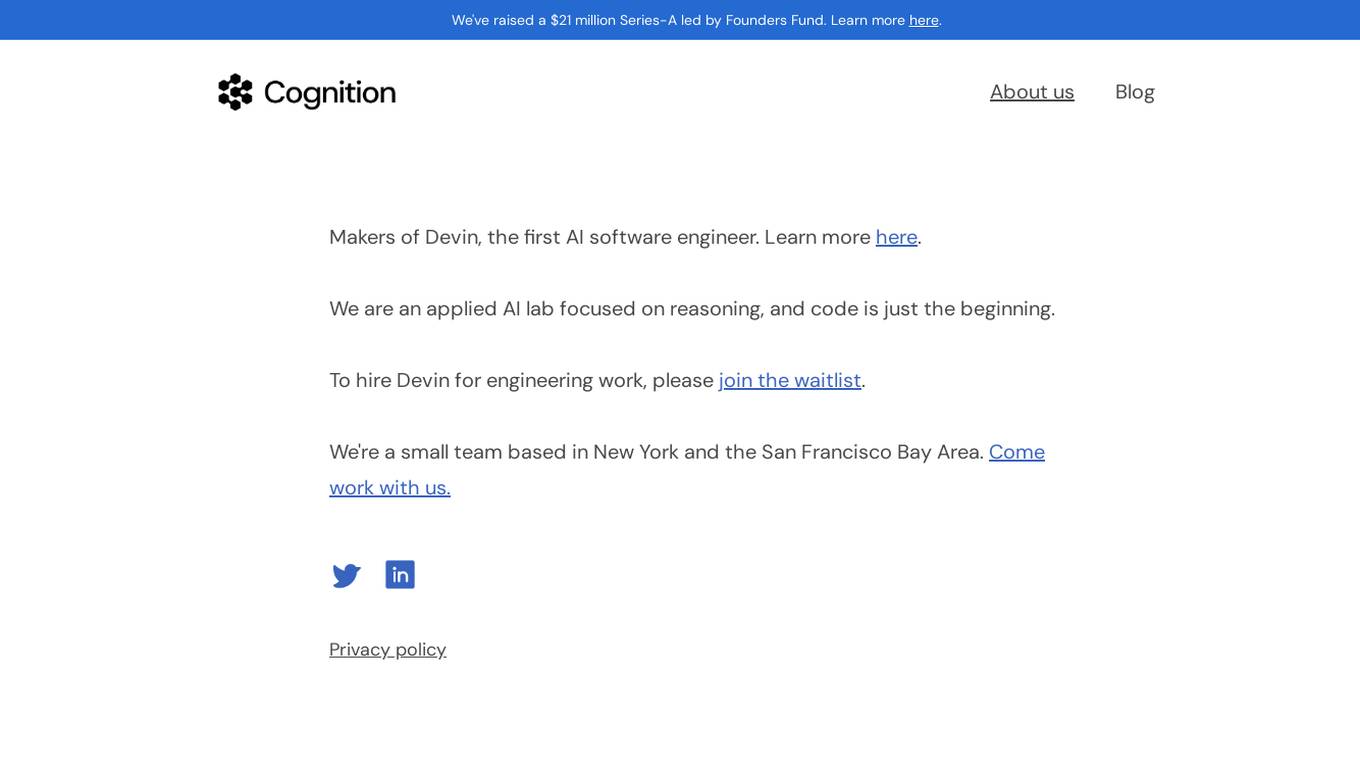
Cognition
Cognition is an applied AI lab focused on reasoning. Their first product, Devin, is the first AI software engineer. Cognition is a small team based in New York and the San Francisco Bay Area.

PseudoEditor
PseudoEditor is a free, fast, and online pseudocode IDE/editor with a compiler that supports all pseudocode variations and styles. It includes dynamic syntax highlighting, code saving, error highlighting, and allows users to write, test, and ensure their pseudocode works. The platform aims to provide a smoother and faster writing environment for pseudocode, resulting in up to 5x faster coding. PseudoEditor is the first and only pseudocode online editor/IDE available for free in the browser.
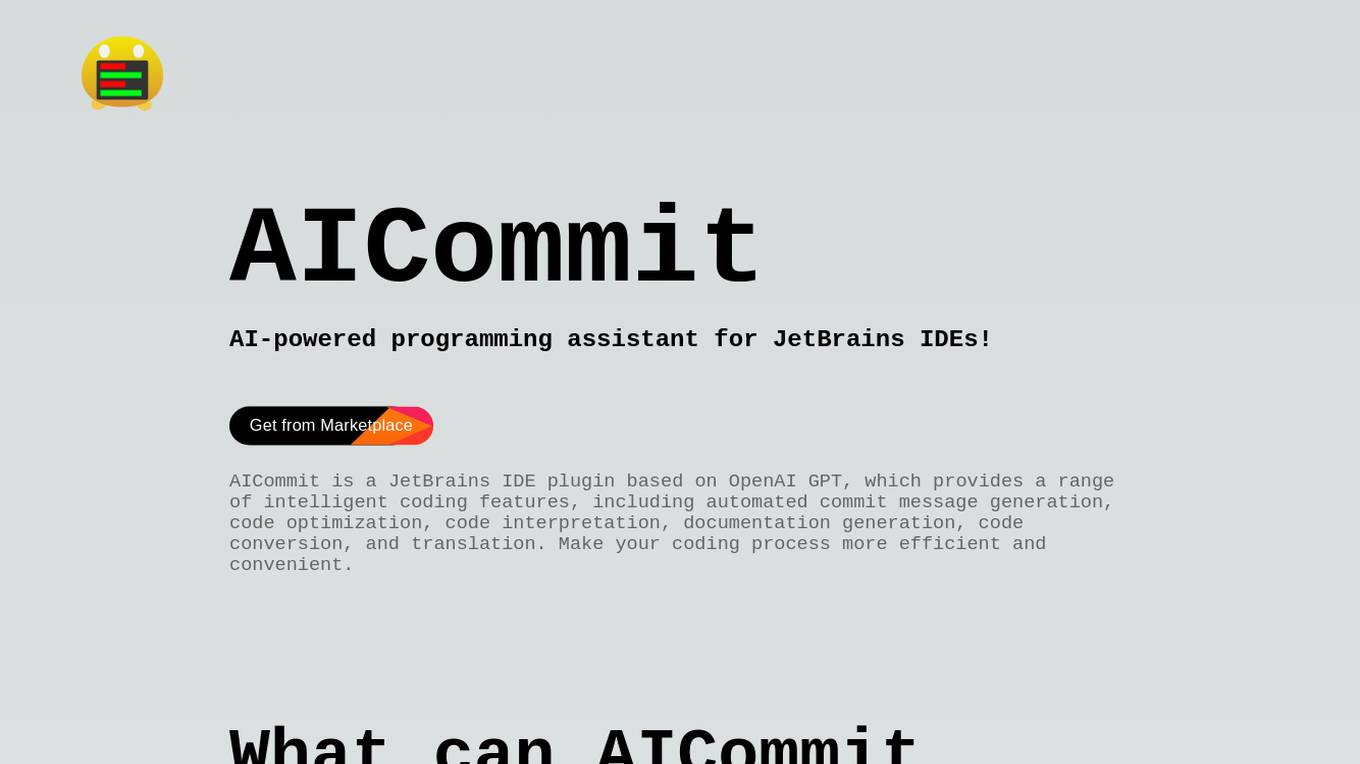
AICommit
AICommit is an AI-powered programming assistant for JetBrains IDEs. It is based on OpenAI GPT and provides a range of intelligent coding features, including automated commit message generation, code optimization, code interpretation, documentation generation, code conversion, and translation. AICommit can help you make your coding process more efficient and convenient.
0 - Open Source AI Tools
20 - OpenAI Gpts
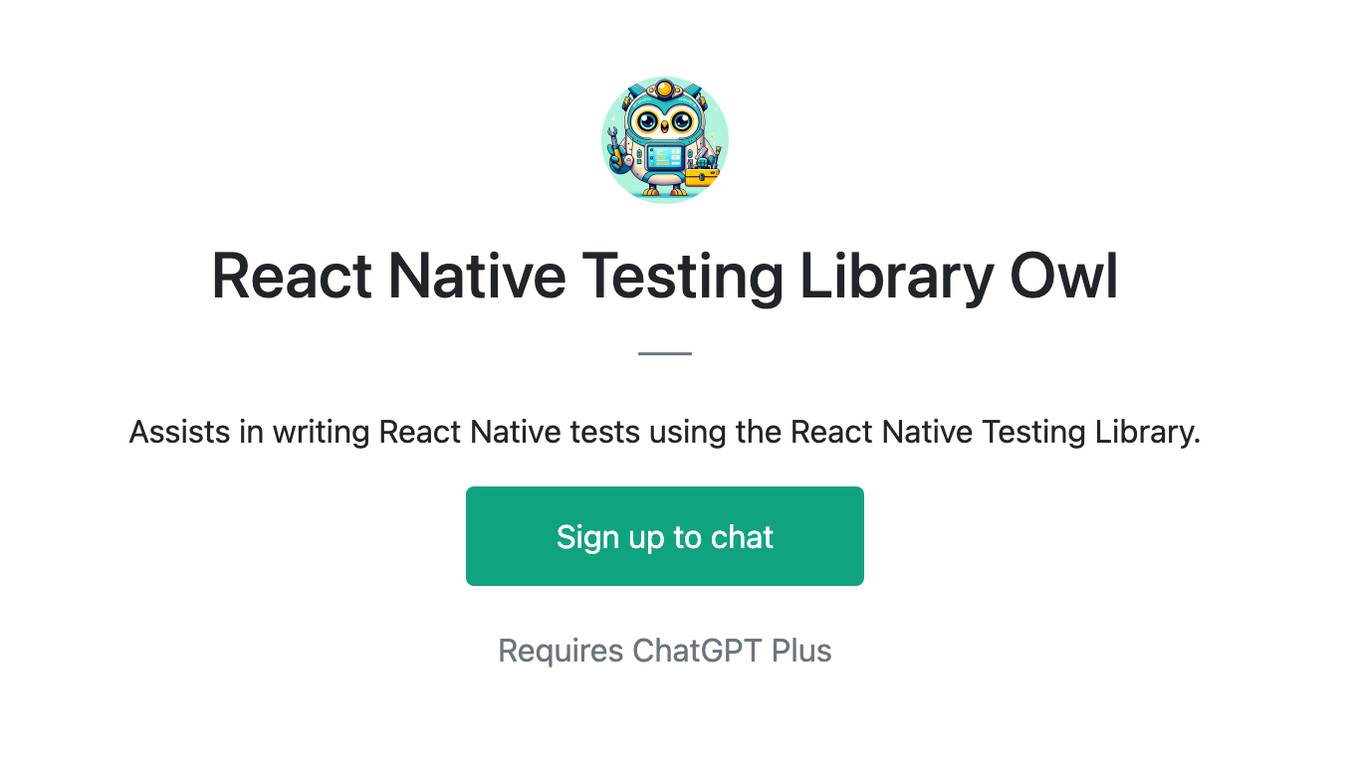
React Native Testing Library Owl
Assists in writing React Native tests using the React Native Testing Library.
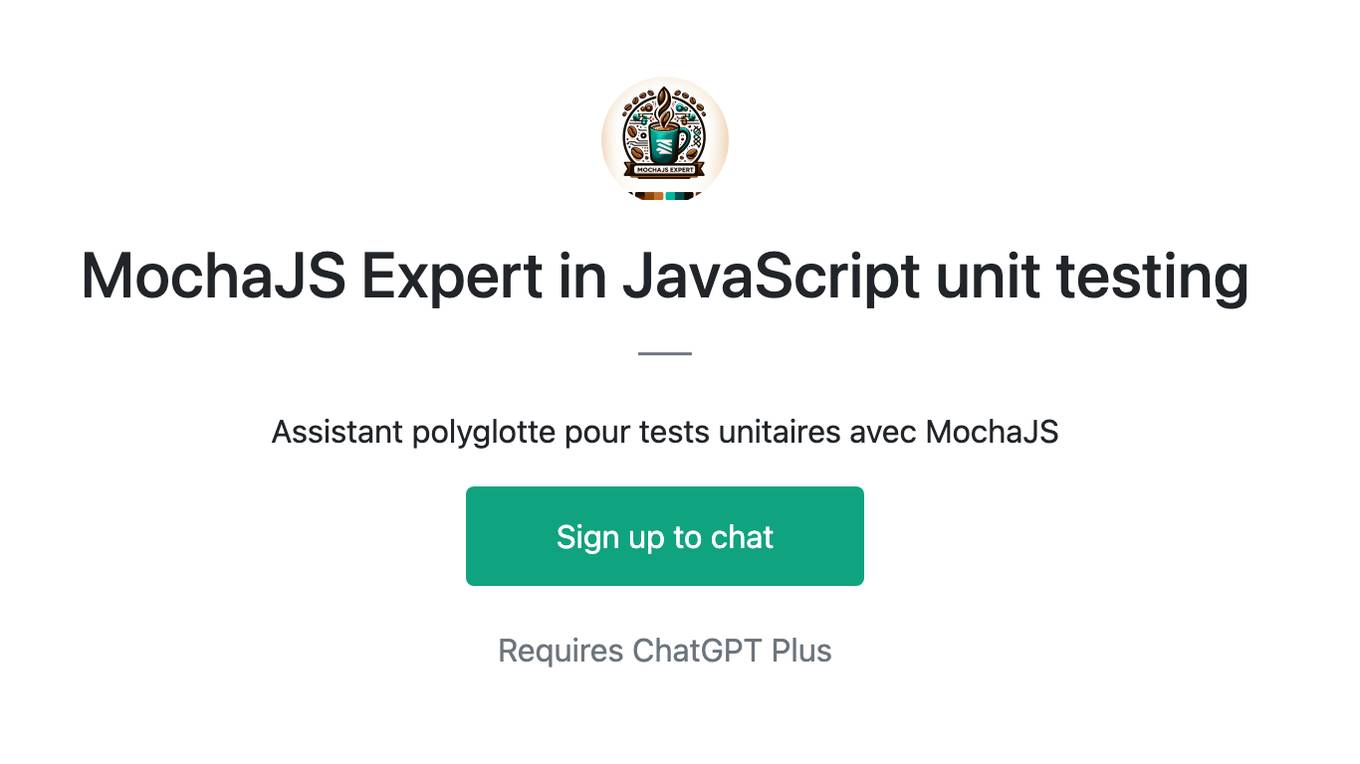
MochaJS Expert in JavaScript unit testing
Assistant polyglotte pour tests unitaires avec MochaJS
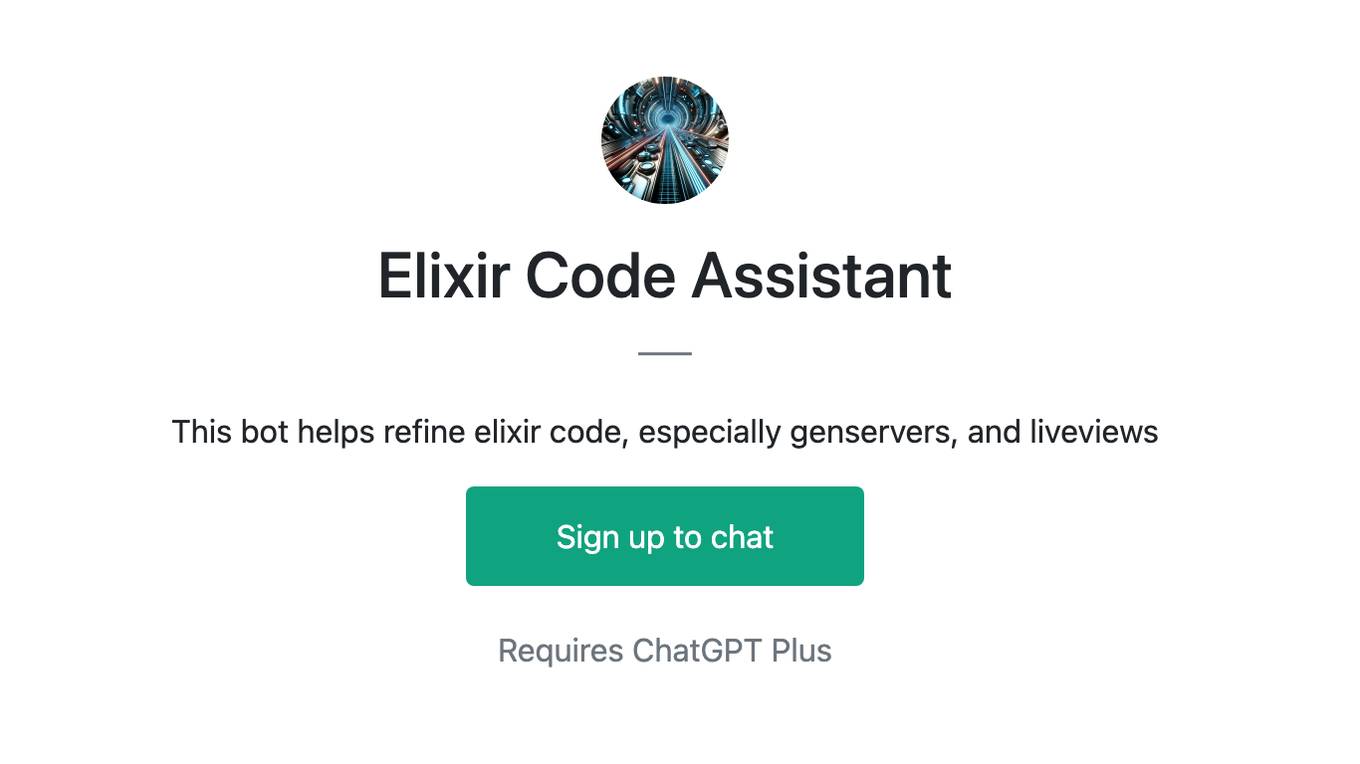
Elixir Code Assistant
This bot helps refine elixir code, especially genservers, and liveviews
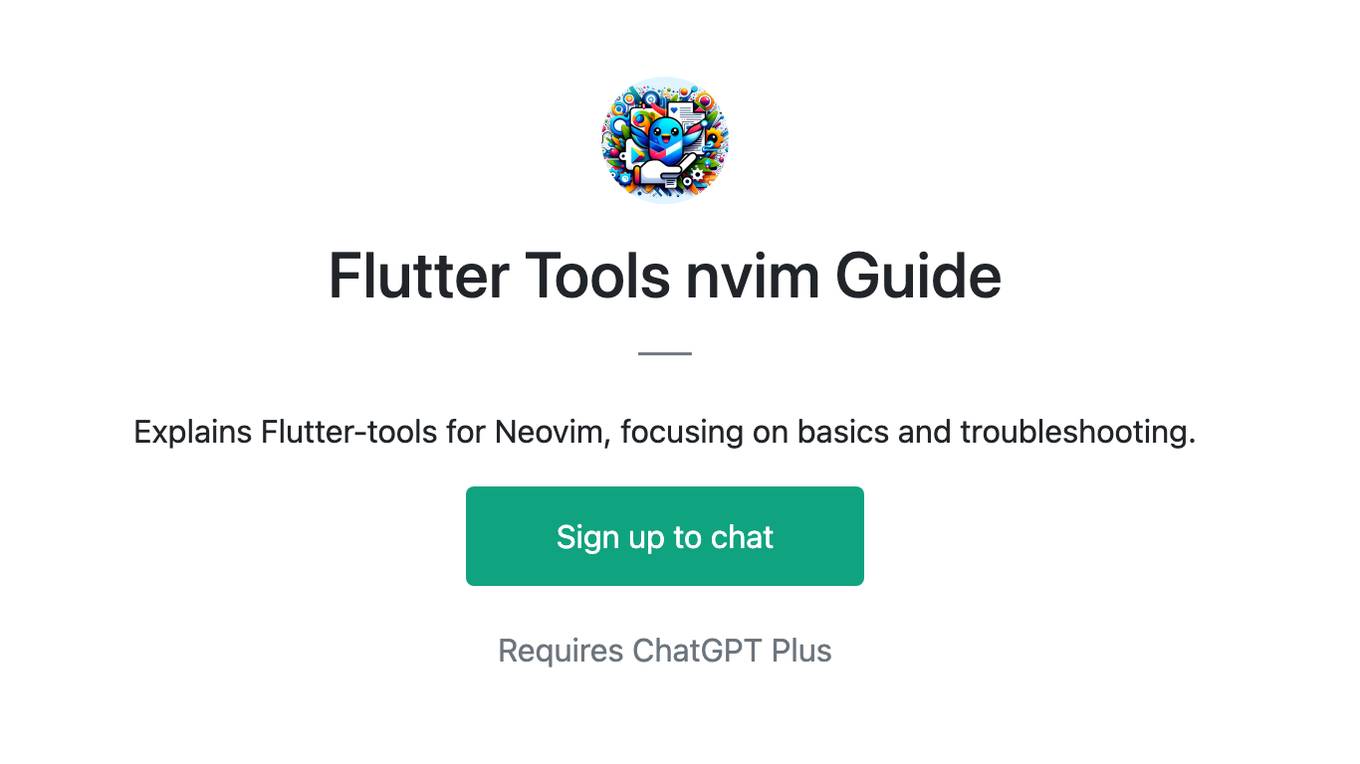
Flutter Tools nvim Guide
Explains Flutter-tools for Neovim, focusing on basics and troubleshooting.
